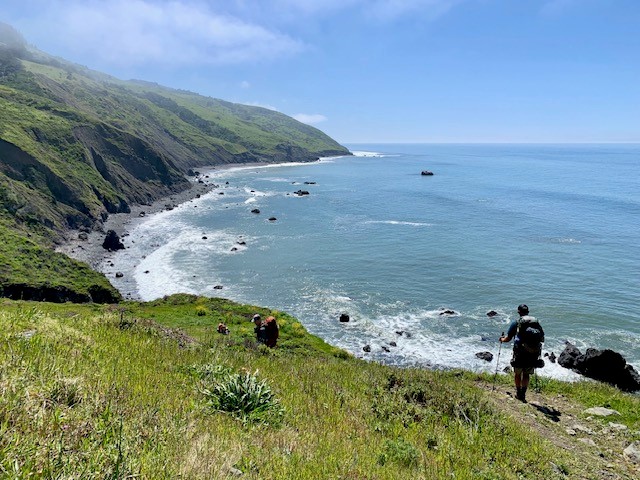“Accept whatever comes to you, woven in the pattern of your destiny, for what could more aptly fit your needs?” –Marcus Aurelius
Theodore Roosevelt was born with crippling asthma.
As a child, even the slightest exertion would leave him bedridden for weeks.
Then one day, his wise father came to his room and said something that would shape his entire approach to life—and cure his asthma.
“Theodore,” his father said, “You have the mind, but not the body. I’m going to give you the tools to make your body. It’s going to be drudgery, but I believe you have the will to do it.”
His father built him a home gym on the second story deck of their house.
The young Roosevelt is quoted to have responded to his father, “Then I will make my body.”
From that day forward, he worked out feverishly.
By the age of 20, he had no remaining symptoms of asthma. He literally expunged the weakness from his body.
One has to believe that this significant physical handicap he overcame in his youth built his foundation of grit and resilience for the many hardships he would later surmount.
He survived several wars.
His wife and mother died on the same night.
He nearly died of tropical disease in the Amazon.
And he delivered a 90-minute speech after being shot in the chest during an assassination attempt! The bullet would remain in his body for life.
He went on to win the Nobel Peace Prize and is still the youngest president ever to take office.
A Personal Example
As a recovering perfectionist, compulsive planner, and probable control freak—I have spent most of my life approaching obstacles by trying to avoid them or get them out of my life as quickly as possible.
Maybe you can relate.
Although my example is not as dramatic as Roosevelts, let me give you an example from my personal life.
I completed graduate school in 2007 with a mountain of student loans. Lets just say it was well into the hundreds of thousands (because it was). Then I put my loans into forbearance to enjoy having a job and salary for a while (which I don’t recommend!).
Several years into my marriage, my wife came to our senses.
She looked at all our debt and said, “we’ve got to do something serious about this and make some big changes.”
I had blown off her concern for a long time, but finally had a wakeup call.
We found Financial Peace University (FPU) and spent the next 8 years scratching and clawing our way out of debt. (I have no affiliation with FPU).
For years I resented my student loans. Part of me felt cheated when my friends who started working at 18 already had homes, nice cars, and boats. I was frustrated, embittered, and despairing at times. No wonder the student loan issue has gotten so much media attention. It’s a crippling financial problem for our nation.
But my journey out of debt taught me some of the most valuable lessons in my entire life.
We learned to budget every month.
We learned to communicate and work together as a couple.
We learned to save an emergency fund.
We started paying cash for cars and vacations.
And we paid off every single penny of my student loans, credit cards, and all other non-mortgage debt.
We have not had debt in 7 years, and never plan to again (except for house, which we hope to pay off early).
Without the sheer enormity of my loans, I am certain I never would have set out to learn about personal finance with the ferocious determination that I did. We never could have built the habits we did without the crushing weight of all that debt to light the fire of fierce determination.
This trial was my teacher.
And without it, I may never have changed.
I am now grateful that I had this obstacle in my life and all that it has shaped for me.
I can better see how I can’t become the person I want to be without hard situations to draw out those qualities.
In his amazing book, The Obstacle is the Way, author Ryan Holiday shares many amazing historical figures who have been shaped by the obstacles they faced throughout their lives. I think this book should be required reading for every human.
Our instant gratification culture has weakened us and promotes an unhelpful view of life challenges. It’s all about the quick fix. But we should long for the worthwhile fix, not the quickest way out of discomfort.
It’s like the difference between taking steroids or going through the painful workout that tears the muscle so it can eventually grow stronger.
It represents a fundamental shift in how we view trials that I have found very helpful lately. Life or God will provide me with situations that are necessary vessels for meaningful growth and transformation.
I recently returned to therapy to address some personal issues that I had been hoping would just resolve. I had been ignoring them and not doing the real work.
The challenges with my children are priceless opportunities to become more patient, more gentle, more forgiving.
The challenges in marriage are situations I need to become less self-centered and more humble.
When I face illness, I now try not to resist and control, but to allow and endure, to grow in grit and grace.
As Holiday says in his book, “No one is born with a steel backbone.” It must be developed through practice.
Psychologist and best-selling author Benjamin Hardy puts it this way, “Heroes are the products of situations.” They cannot be developed any other way.
It is important to mention that I am not talking about severe grief or loss. Meaning and growth may well come from those experiences in time, but it is healthy to permit the emotional experience without trying to be too positive about the loss too soon.
In closing, I will share the following scripture that I have always found encouraging:
“We can rejoice too, when we face problems and trials of many kinds, because we know that suffering produces endurance, endurance produces character, and character produces hope.” –Romans 5:3-5
And just for historical reference, this may have been written when the apostle Paul reflected on how imprisonment gave him the opportunity to write more. A big shift in perspective.
If this mental habit doesn’t come naturally to you, I hope you take encouragement from knowing that optimism can be learned and developed as a skill, to a great extent.
Take action now
Identify a trial in your life and conduct a benefit-finding exercise. Write down everything you have learned from it and might not have been able to learn any other way. This can help train you to look for benefits in future trials. It requires regular practice in intentionally shifting your perspective.
Have a great weekend!
Parker
*If you have enjoyed Parker’s blog, check out The Next Peak Podcast that Parker co-hosts. We interview successful leaders and discuss research-based principles that help people win in the workplace without compromising the things that matter most—relationships, a life of purpose, and health.
Want more? Suggested Resources Below
- The Obstacle is the Way by Ryan Holiday
- Willpower Doesn’t Work by Benjamin Hardy
- The Bible




